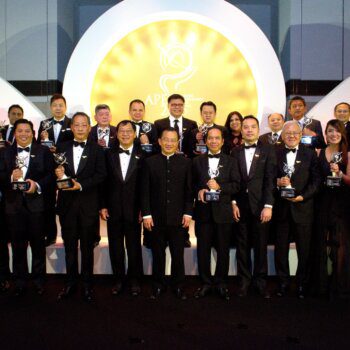As a child, I was enthralled with the works of James Burke. Like the enso, the tales he told had no beginning or end. His work simply explored the “connectedness” of things, both past and present.
I was reminded of James Burke while attending the recent ICANN gTLD & IDN Outreach event in Hong Kong (videos of all of the sessions and materials are available here online).
This fascination with lucky numbers is so intense that people have been known in Hong Kong to pay outrageous amounts for license plates with lucky number combinations. Recently, in February, someone paid about US$220,000 for a plate with the numbers 2318, which sound like “easy life and prosperity” in Cantonese. The date and time for the commencement of the recent Beijing Summer Olympics (8/8/08 at 8 seconds and 8 minutes past 8 pm) was not an accident. Triple eights and the number 8 in general are considered very lucky in Chinese culture.
So when I sat down with Doug and Edmon, I asked this question about numeric gTLDs because I wanted to see if it was possible for someone to leverage this Asian fascination with lucky number combinations to register a new gTLD that would otherwise escape the notice of western applications focused on new gTLDs like . film, .movie, etc.
I wanted to know if someone could apply for a gTLD like
The answer I received from both was “yes” (with the usual caveats). And their answers got me thinking.
Aside from puns, another source that influences whether a number is considered lucky or not is the I Ching. For example, the 8 trigrams of the I Ching play a role in the number’s popularity and the numbered trigrams themselves have lucky or unlucky connotations (as do the total number of hexagrams (64)). The I Ching’s influence throughout Asia and the rest of the world is, and has been, considerable. The modern South Korean flag bears 4 hexagrams from the I Ching:
Furthermore, the I Ching had a profound impact on Zen monks in Japan and had a profound impact on Tokugawa Japan and Zen thought in Japan at the time.
Perhaps one of the most relevant influences of the I Ching to our discussion is the impact it had on the work of Franz Leibniz and his work on philosophical mathematics and hischaracteristica universalisa. The Jesuit, Father Joachim Bouvet, brought the I Ching to Leibniz’s attention in 1698, and Leibniz concluded from his studies of the I Ching and the work of Shao Yung, a Song Dynasty philosopher who is credited with contributing to the binary nature of the I Ching, that Chinese characters may have been an early form of hischaracteristica universalisa and he noted the binary nature of the I Ching hexagrams and wrote about them extensively in his article, Explication de l’Arithmétique Binaire that was published in 1703.
Leibniz’s work on binary language and his philosophical mathematics led to ideas and breakthroughs that have led him to be called the first computer scientist. In 1679, his work on binary mathematics led him to conceptualize a machine that would use pellets and be controlled by punched cards. He made many other significant contributions that influenced other thinkers after him that would make their own contributions to modern science. Leibniz’s work, and the influence of the I Ching, the Chinese language and thought on his work, laid the groundwork for science that underlies the modern computer revolution and the Internet. So perhaps it is fitting that there is Unicode support for the I Ching hexagrams.
More importantly, it seems somehow appropriate that more than 300 years after the Chinese language and the I Ching influenced one of the founding fathers of the computer revolution, it will soon be possible to have a lucky number sequence in Chinese as a top-level domain….
piece written by IDN.asia. See more.
































